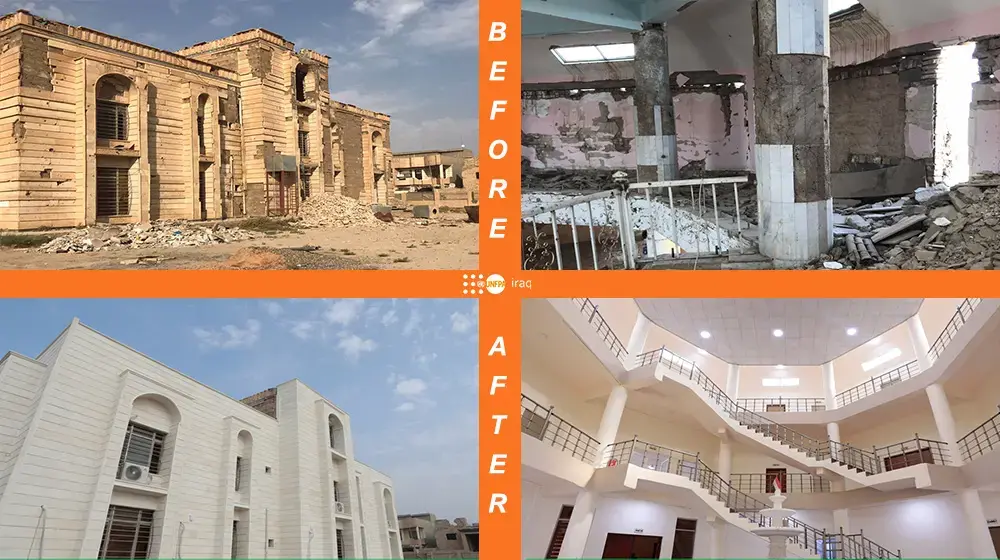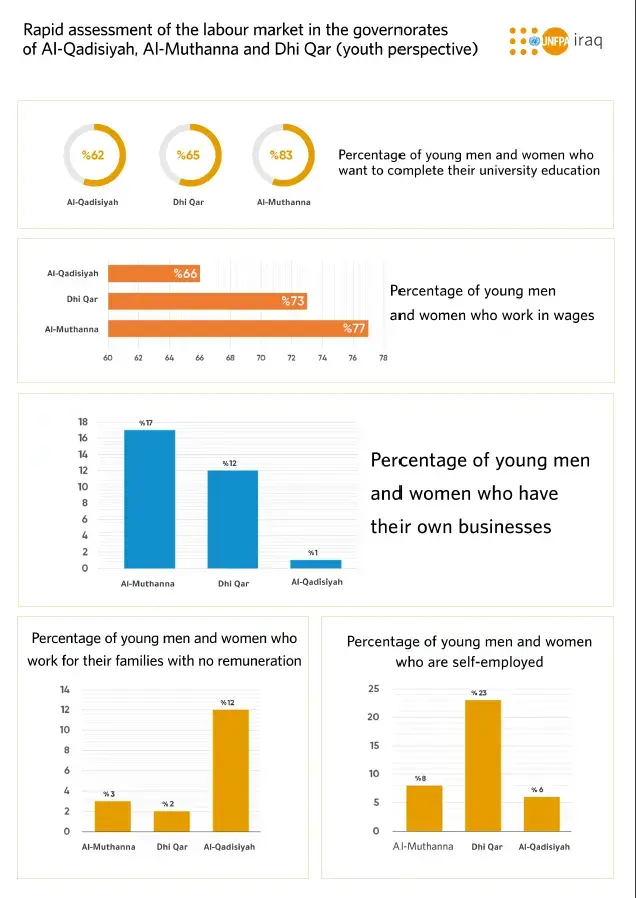Ghalia, 33 from Aleppo, is one of the thousands of people who found themselves running for their lives in the wake of the battle of Al-Hasakah, north-east of Syria, in 2016. With her uncle’s family, she settled in Domiz 2 camp, in Duhok Governorate in the Kurdistan region of Iraq.
When her parents and brother were killed during an airstrike in Aleppo a few years ago, she went on to live with her uncle’s family in Al-Hasakah. A few months later, she fell in love with an Iraqi man and, given the security situation in Syria at the time, they proceeded with a customary marriage.
Seven months into the marriage, the man she trusted abandoned her, stealing her belongings which she had inherited from her mother and the little money she had saved from her work at a bakery in Al-Hasakah.
‘I lost everything. My husband not only took my physical belongings but he also took away the little feeling of stability, safety, and happiness I had. I couldn’t go to court to get my rights given that I had no legal document supporting my story. To top it all, I was pregnant when he left me. His actions took a toll on my health and I lost the baby. Everything went downhill,” says Ghalia.
To add to her misery, the increased fighting in Al-Hasakeh forced her and her uncle’s family to flee to Domiz 2 camp. The young lady suffered from a nervous breakdown soon after as displacement and heartache led her to attempt suicide on many occasions.
Soon after, her uncle’s wife reached out to the Women Centre in the camp seeking their help. The social workers immediately sat with Ghalia and listened to her story.
“It took a while for me to trust the social workers. I only attended the first meeting because my uncle’s wife pushed me to,” explains Ghalia. “A few sessions later, I saw empathy and support from the social workers. They started giving me advice on how to act and how to think when I feel like I am heading to a dark place in my mind. They told me that I wasn’t the only one who was feeling this way; I didn’t believe them at first”.
Ghalia began attending the awareness sessions and life skills courses offered by the Women Centre where she met other women with their own interesting story each: “I started developing a sense of belonging; I stopped feeling alone and started enjoying the company of the girls, especially when we opened up and I discovered that they too have stories similar to mine.”
Meeting individuals who had gone through the same challenges gave Ghalia the confidence and strength she needed to move forward and stop dwelling on what initially broke her.
“I now work as a volunteer in the Centre. I get to tell my story, talk about my depression to those who are going through a rough patch and share my lessons learnt from this experience, with the hope that it can give them a sense of relief,” she says with a proud smile on her face.
Domiz 2 camp is home to close to 8,700 Syrian refugees who fled the war seeking a safe haven. UNFPA has one maternity unit, a reproductive health clinic, a youth centre and a women’s social centre that is providing counselling, psychosocial support, awareness sessions, recreational activities and life-skills courses to hundreds of women on a monthly basis.
**********
UNFPA, the United Nations Population Fund, delivers a world where every pregnancy is wanted, every childbirth is safe and every young person’s potential is fulfilled.
For more information or media inquiries please contact: Salwa Moussa, Communications Analyst, smoussa@unfpa.org




